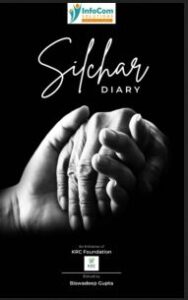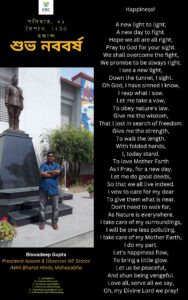Pawar and TMC’s Mamata Banerjee seem to be on the same page and distanced themselves from Congress-led agitation in Parliament for a JPC

Is Prime Minister Modi beatable? What will it take to defeat him? Is there an alternate? A leader who can match him? Can the Opposition unite? Are Parties willing? Questions abound.
NCP Sharad Pawar’s rejoinder to Congress Rahul Gandhi’s demand for a JPC on the Hindenburg Adani issue, that he couldn’t “see the logic for a JPC and Adani was being targeted” has pierced the perceived mirage of unity in Opposition ranks. “I think bread and butter issues like unemployment, price rise and farmers’ issues are more important.”
It also tapped sentiments of some Parties at a time when Congress leadership is preparing to host them for unity moves. And coincides with differences within Opposition ranks on the Adani issue. Pawar and TMC’s Mamata Banerjee seem to be on the same page and distanced themselves from Congress-led agitation in Parliament for a JPC.

e-mail: infocom.krc@gmail.com
Know More | Apply Here
The Opposition views Modi’s daily drone against corruption as him erecting a counter to the Adani issue and against them. A fourth plank so to speak alongside the ‘leadership-development-Hindutva-nationalist quartet. Specially, post Supreme Court refusing to hear their petition against ‘abuse’ of CBI and ED against them.
Besides, the BJP has managed to change the political narrative by injecting Hindutva ideology into it. Rivals are finding it difficult to find common ideological grounds to oppose it on that front or adopt a softer version of Hindutva. Modi has a distinct advantage with his larger-than-life persona coupled with the division among Opposition ranks, even if delivery continues to be a proverbial glass-is-half-full-or- empty.
There is scepticism within Congress on whether the Adani issue has political and electoral resonance with masses and if it risks the same fate as Rahul’s pre-2019 Lok Sabha elections fixation with the Rafael deal that failed to fire up voters imagination thereby helping BJP by diverting electoral focus away from many incumbency issues.
For reasons best known to him Rahul’s seems to have a habit of putting his foot in his mouth as by his comments again on RSS ideologue Savarkar which has angered its Maharashtra ally Shiv Sena as it reveres him as a great freedom movement leader.
Whether all these 16 Parties who protested along-with Congress in Parliament on Adani will stay the course is a suspense. Already, Mamata has announced of “going it alone in 2024 general elections and not joining any Opposition alliance,” following TMC defeat to Congress-CPM in a State bye-poll. Ditto Akhilesh’s SP.

Alongsie, within Congress some leaders feel the leadership should tactically broad-base the campaign against Modi Sarkar by showcasing economic issues that hit the aam aadmi. Moreover, the recent Raipur plenary has not given the expected boost to cash on the popularity built through Rahul’s Bharat Jodo Yatra and attempts to erase his ‘pappu’ image is a setback for the Party.
Some senior leaders feel the Party should stratagise by stooping to conquer by not asserting its primacy as a national Party so as to facilitate a gravitation towards a ‘mahagath bandhan’. Also, naming a Prime Ministerial candidate prior is a strict no-no. But the High Command is neither willing to let go of its supreme national position by playing second fiddle to a regional satrap nor the exalted position of the Nehru-Gandhi inheritors in decision making, both main hurdles in unity.
Already, Opposition is divided on how to deal with Congress. Mamata’s TMC, Kejriwal’s AAP and Chandrashekhar Rao’s BRS which total nearly 80 Lok Sabha seats are against Congress under the Opposition umbrella. Others like Stalin’s DMK, Nitish Kumar’s JD(U), Laloo’s RJD, Soren’s JMM and Thackeray’s Shiv Sena are pro-Congress and together can fight in 100-odd seats.
The third group is of opportunistic fence sitters who will play both ends against the middle. Though they don’t want to cede political space to Congress in their respective States but are ready to join it in power sharing. Pawar’s NCP in Maharashtra, Gowda’s JDS in Karnataka, Akhilesh’s SP and Mayawati’s BSP in UP and Left Parties, though their presence is minimal outside Kerala, account for around 80 seats.
Last but not least are Patnaik’s BJD in Odisha and Reddy’s YSRCP in Andhra for both, their States are paramount than identification with a camp. This leaves Rajasthan, Madhya Pradesh, Gujarat, Himachal, Uttarakhand and Chhattisgarh where Congress takes on BJP directly in 90 seats.
Alas, the Congress sees itself as the fulcrum of Opposition unity ignoring two harsh reality: It is struggling to keep its house in order with rebellion brewing across States. Two, its poll arithmetic does not add up as seen recently in its rout in North East and failure to transfer its votes to CPM with which it had a pre-poll pact in Tripura Assembly poll. This has made Parties wary.
Further, majority of regional Parties were born on anti-Congress ideology or branched out as they were not allowed to grow under the First Family, Mamata and Pawar. Having developed their own identity and enjoying political independence they are unlikely to help Congress get foothold in their fiefdom. They know what happens once Congress crossed 100 seats and assumed UPA leadership 2004-14.
Said a regional satrap, “We are more comfortable fighting BJP in our home front and are not interested in having strong Congress in Delhi which is of no help to us in our State level fights. Also it is one thing to win a State election and another for a regional leader to lead a disparate Opposition to victory against BJP at national level.”
Also, a broad based coalition approach may not work as it would be difficult for Congress to work with rivals in States. Think. Congress and AAP are rivals in Delhi and Punjab. Bing part of a coalition might not be acceptable to AAP as it has been recognized as a national Party and wants to expand its footprints in Gujarat, Rajasthan and MP. Another fault line was visible when 8 Opposition Parties signed a letter protesting arrest of AAP’s Sisodia but 3 including Congress didn’t. The same is in Telangana where Chandrashekhar Rao’s BRS is in conflict with Congress.
Consequently, the Congress is both the basis and barrier for Opposition unity. Unless it sheds its arrogance, subsumes itself and takes the initiative to open talks with regional bosses and starts conceding political space, even grudgingly, there is no way unity talks will fructify. The goal to defeat BJP and dethrone Modi is clear but the way is strewn with inflated egos, baggage and negativity.
Unfortunately, the Opposition or their leaders have done very little of substance in the last 8 years to convince voters they can provide better governance than BJP. The upcoming elections later this year will serve as a semi-final for both BJP and Opposition particularly in Karnataka, Rajasthan, MP where the Congress-BJP will be in direct contest.
He Opposition will have to find the language and repertoire that can match BJP’s dexterity, multi-vocality, poll fighting mean machine and resources with which it shores up its communication dominance and perceived imagery. Modi has already thrown down the gauntlet by refreshing Hindutva, projecting and redefining nationalism and the country’s self respect. Unless there is unanimity on vision Opposition Parties can only show voters a hazy chimera of unity. Who will take up cudgels against the BJP beyond rally slogans?


